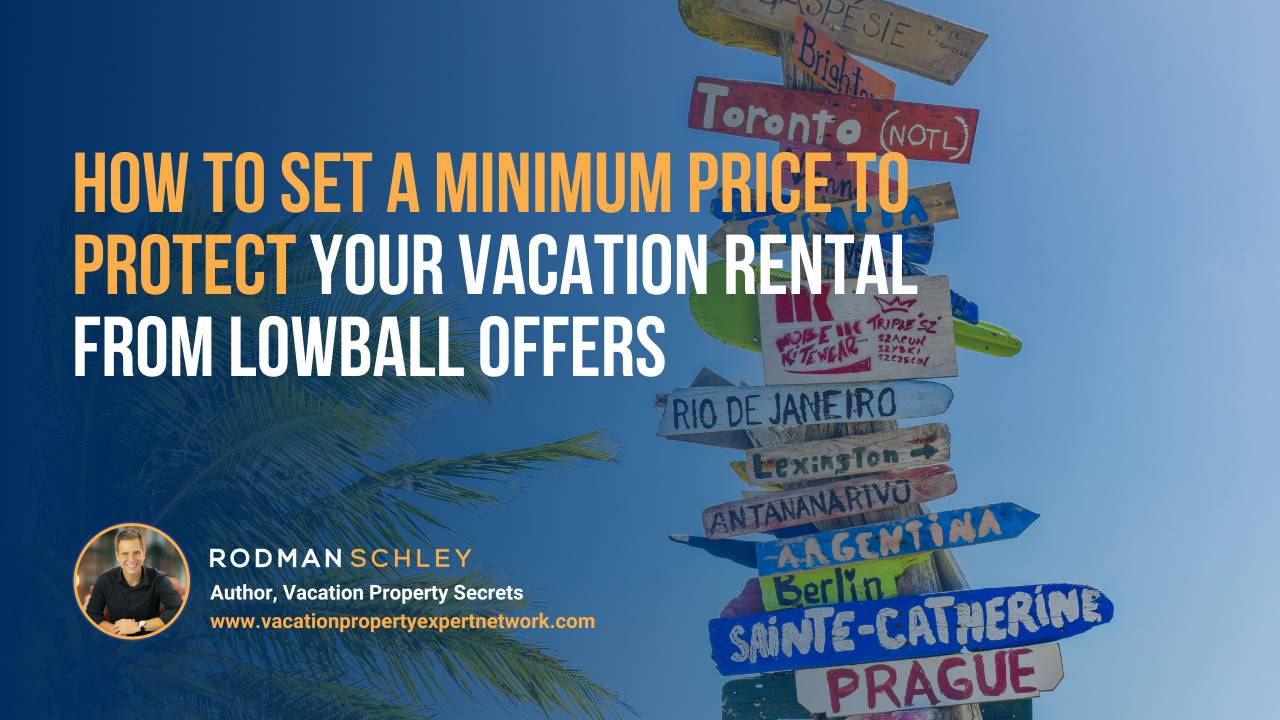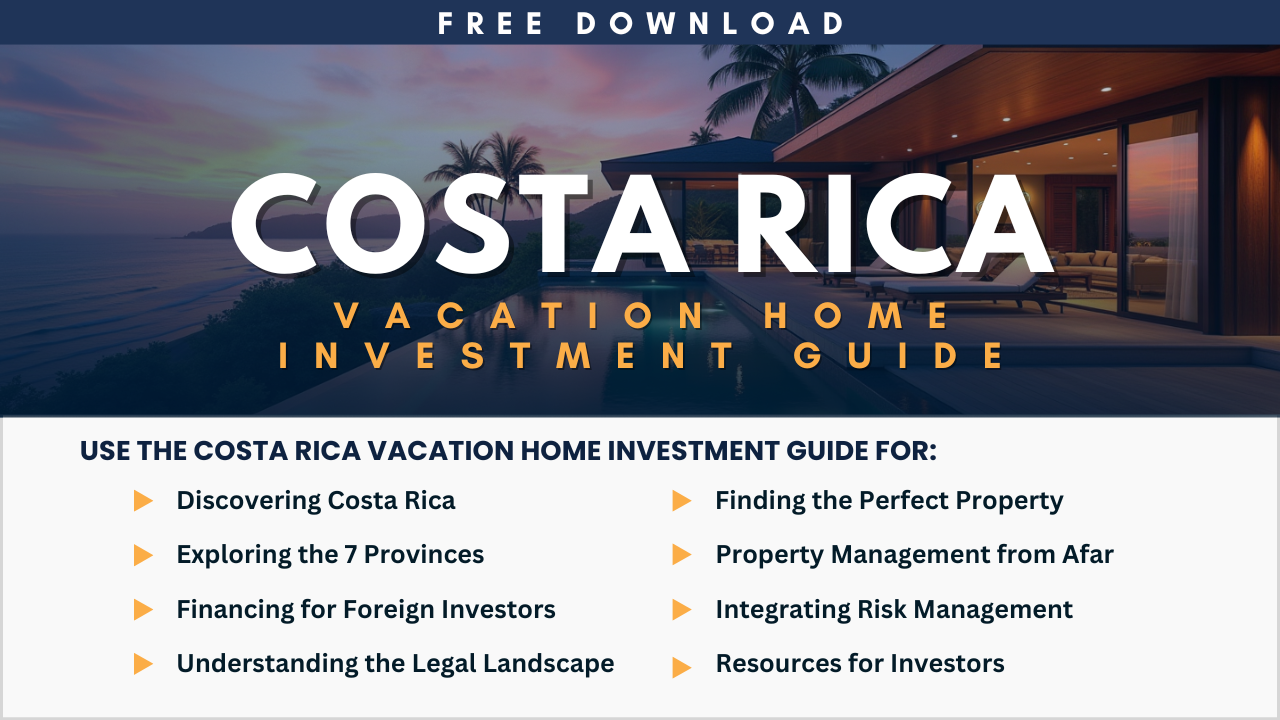
How to Set a Minimum Price to Protect Your Vacation Rental from Lowball Offers
As a vacation rental owner, setting the right price for your property is essential for maximizing revenue while ensuring that your property stays competitive in the market. While offering competitive pricing can attract guests, there is a risk of receiving lowball offers—guests who try to negotiate for an unreasonably low rate or attempt to secure a discount that cuts into your profits.
To avoid these situations, it’s important to establish a minimum price for your vacation rental. This minimum price helps protect the integrity of your pricing strategy and ensures that you’re not undervaluing your property. In this blog post, we’ll explore how to set a minimum price for your vacation rental, why it’s important, and how to handle lowball offers while maintaining profitability.
Why Setting a Minimum Price Is Essential
Setting a minimum price is an important strategy to safeguard your profit margins and prevent guests from undervaluing your property. Here's why it's necessary:
Protects Your Revenue
- The primary reason for setting a minimum price is to ensure that your property is never rented for less than it’s worth. If you accept lowball offers, you risk undermining your earnings and reducing your return on investment (ROI). Even if you’re eager to book your property, it’s important to remember that lowering your rates too much may prevent you from covering your operating costs or generating a reasonable profit.
Ensures Long-Term Profitability
- Constantly accepting low offers or undervaluing your property can have a negative impact on the long-term sustainability of your rental business. While it may seem tempting to get a booking at any cost, accepting significantly lower rates could lead to a reduced perception of value. This could result in fewer guests willing to pay the full price in the future.
Avoids Undermining Competitor Pricing
- In competitive vacation rental markets, setting a floor price prevents you from pricing yourself out of the market or setting a precedent for low rates. When you continuously offer discounts or accept low offers, it may prompt guests to expect cheap pricing for your property and potentially other rentals in the area. This undermines the value of your property and could harm the overall market.
How to Set a Minimum Price for Your Vacation Rental
Setting a minimum price requires a careful analysis of various factors that contribute to the value of your property. Here are the key steps to help you establish a price that ensures both competitiveness and profitability:
Understand Your Operating Costs
- The first step in setting a minimum price is understanding the costs associated with running your vacation rental. These costs include:
- Mortgage or rent payments (if applicable)
- Property management fees (if you hire a management company)
- Cleaning and maintenance costs
- Utilities (e.g., electricity, water, internet, etc.)
- Insurance premiums
- Taxes (property tax, local rental taxes, etc.)
- Mortgage or rent payments (if applicable)
- These costs form the baseline for your minimum price. The price should be set high enough to cover all these expenses while still leaving room for profit.
Research Comparable Listings in Your Area
- Next, you’ll need to look at comparable vacation rentals in your area to understand the going rates for properties with similar amenities, location, size, and quality. This gives you a sense of the market price range for your type of property.
- Airbnb, Vrbo, and Booking.com: These platforms provide an easy way to check similar listings and compare pricing based on location, amenities, and seasonality.
- Look for properties with similar amenities: Compare properties that offer similar features, such as a pool, hot tub, or private kitchen. If your property has extra features (e.g., luxury decor, better location), it can justify a higher minimum price.
- Airbnb, Vrbo, and Booking.com: These platforms provide an easy way to check similar listings and compare pricing based on location, amenities, and seasonality.
- By understanding how your property stacks up to competitors, you can set a price that remains competitive while still reflecting your property’s unique value.
Consider Seasonality and Demand
- Pricing can fluctuate throughout the year, especially during peak seasons or local events. While your minimum price should remain consistent, you can adjust based on seasonal demand. Here’s how:
- High-demand periods: During holidays, summer, or local events, you can increase your prices to take advantage of the higher demand. However, ensure that the price increase doesn’t dip below your minimum threshold.
- Low-demand periods: During off-peak seasons or when demand is low, you can offer discounts, but always stay above your minimum price. Discounts should be strategic and not bring your rates down too much.
- High-demand periods: During holidays, summer, or local events, you can increase your prices to take advantage of the higher demand. However, ensure that the price increase doesn’t dip below your minimum threshold.
- By considering seasonal trends, you can adjust prices to meet demand without lowering your rates to an unsustainable level.
Calculate Your Desired Profit Margin
- The minimum price should also include your desired profit margin. Once you’ve accounted for your expenses, think about the return you want on your investment. Whether you want to generate a 10%, 15%, or 20% ROI, factor that into your minimum price calculation.
For example:
- If your monthly expenses (mortgage, cleaning, maintenance, etc.) total $2,000, and you want a 15% profit margin, your minimum price would need to cover $2,000 plus 15% of that amount ($300).
- Your minimum price would be $2,300 for the month, and you can use this as a baseline for your nightly rate.
This ensures that even during slower periods, your property remains profitable while covering your fixed costs.
How to Handle Lowball Offers
Even with a minimum price in place, you may still receive lowball offers from potential guests. Here’s how to handle these situations while maintaining your property’s value:
Politely Decline Low Offers
If a guest offers a price below your minimum rate, politely explain that your rates are firm due to the quality and value of your property. For example:
- “Thank you for your offer, but my rates are set to reflect the true value of the property. I believe it’s a fair price given the amenities and location.”
- “I understand you’re looking for a discount, but the price reflects the costs of maintaining a high-quality vacation rental. I’m unable to go lower, but I’d love to have you stay!”
By standing firm on your price, you reinforce the value of your property and prevent guests from thinking they can negotiate further.
Offer Alternatives Instead of Lowering Your Price
If you want to keep the guest interested without compromising your pricing, consider offering alternatives that add value rather than lowering the price:
- Discounts for extended stays: “While I can’t lower the price for a short stay, I’m happy to offer a discount for a longer stay of 7 nights or more.”
- Additional perks: “I can offer a complimentary late check-out or free Wi-Fi as a thank-you for booking at the current rate.”
By offering value-added perks, you’re providing the guest with an incentive without devaluing your property.
Highlight Your Property’s Unique Value
If a guest seems hesitant about the price, remind them of the unique qualities of your property that justify the rate:
- “Our property is in a prime location with easy access to popular attractions. Additionally, we offer high-end amenities, including a private pool and modern appliances, making it a great choice for an unforgettable stay.”
- “We’ve received excellent feedback from previous guests, and many of them highlight how comfortable and well-maintained the property is.”
Remind guests that quality accommodations come at a price, and they’ll get what they pay for.
Conclusion
Setting a minimum price for your vacation rental is a powerful strategy to ensure you don’t undersell your property or compromise your profitability. By calculating your costs, researching local markets, and considering seasonality and guest needs, you can establish a minimum rate that protects your revenue while remaining competitive.
Handling lowball offers with professionalism and firmness is equally important in maintaining your property’s perceived value. Remember, pricing is about finding the right balance between being attractive to guests and ensuring your investment remains financially sound.
With a solid pricing strategy and the confidence to stand by your rates, your vacation rental will continue to generate the revenue it deserves.
If you’re looking for expert advice on vacation rental management or need resources to optimize your property’s performance, visit 👉www.vacationpropertyexpertnetwork.com for valuable insights, strategies, and support.







